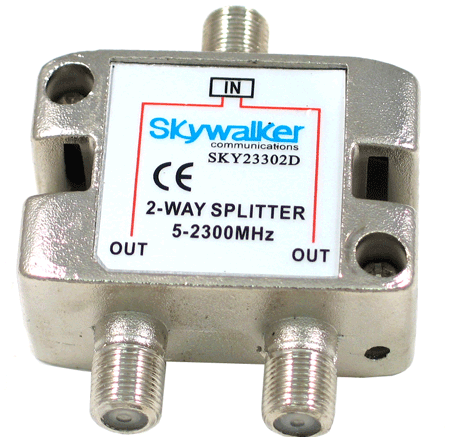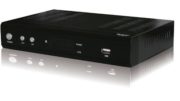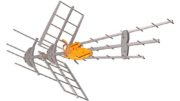Here’s one that came from an antenna enthusiast who wants to do it right. You know, I talk a lot about grounding on this blog. I’m always curious if people actually do it. It seems at least one enthusiast is interested in making sure that it’s done right.
I was asked whether or not you would need a separate ground block if you are grounding the splitter anyway. Are you curious?
Generally, no.
If you are using a splitter like the Skywalker one shown at the top of this article, you’ll see that it has screws and holes intended for ground wire. In the case of this splitter, you feed the ground wire in one of the holes and tighten down the screw. Other splitters will just have you wrap the ground wire around the screw. Either way doesn’t really make a difference.
If you properly ground the splitter, you’ve done the same thing that a ground block is going to do anyway. So there’s no need to put in a ground block if you don’t want to.
But should you do it anyway?
Honestly that’s up to you. There’s no harm in using a separate ground block and it’s probably going to afford you a bit more protection. This is especially true if you put the ground block closer to the antenna. But the amount of protection isn’t likely to make much of a difference.
The most important thing is that you ground at all. I know there are all sorts of local ordinances for grounding. In some areas you can legally ground to a cold water pipe, while in others you must use a ground rod. In some places it’s legal to attach to the ground leg of an outdoor breaker box, while in other areas they don’t have outdoor breaker boxes.
My point here is that if you’re not sure of the ordinances in your area, just do something. Get a copper wire that can run from a ground post or ground block and attach it to something grounded. Doing something, even if it’s not supported completely by electrical code, is better than doing nothing. You really should get some information about the right way to do it. You really should do it right or hire someone to do it right. But if you can’t do that, at least do what you think is right.
A word about grounding
I’ve said this before but people find these articles in different ways. A lot of folks think that grounding will save you from damage in the case of a lightning strike. Sadly that’s not true. A bolt of lightning is about 47 gazillion volts (seriously, it’s a lot) and that much current is going to melt a ground wire and probably a fair portion of your roof. Unless you put in those industrial quality arresters you find on power poles, you’re going to be in a world of hurt if your house is struck by lightning.
The purpose of grounding is to make sure that your house isn’t struck by lightning in the first place. Lightning happens when static electricity builds up in the air to the extent that it travels easily. Proper grounding methods will dissipate static electricity around your home so that never happens.
Get the grounding supplies you need from Solid Signal
Solid Signal is your home for tens of thousands of commercial-grade parts. Whether you’re a DIYer or an installation pro, you’ll appreciate the great selection and free customer service. Shop for the grounding supplies you need now!





